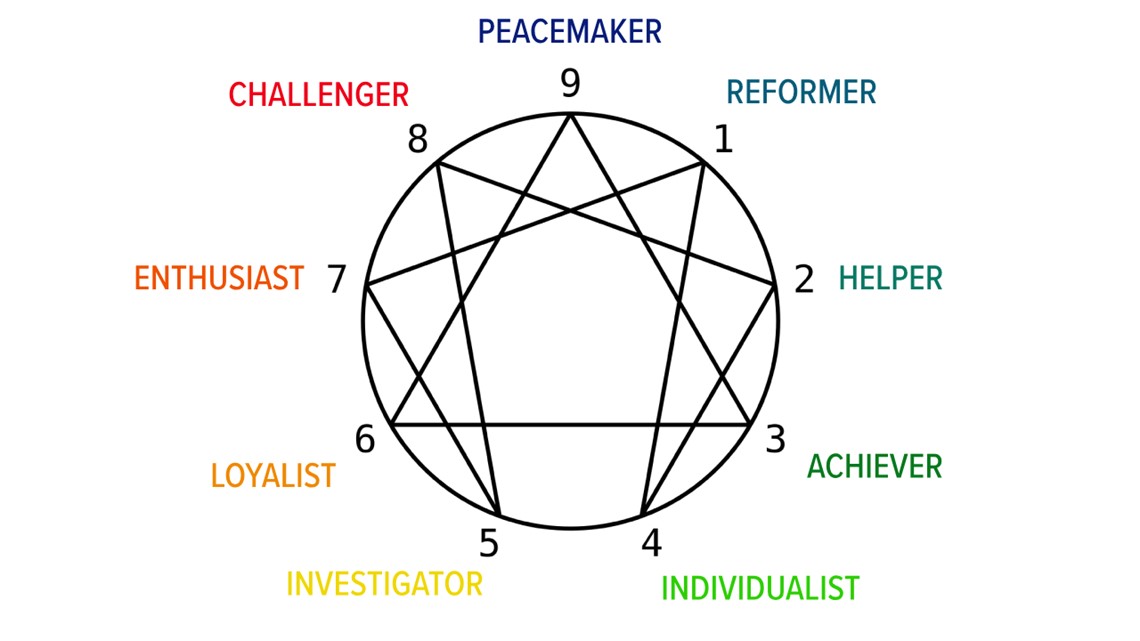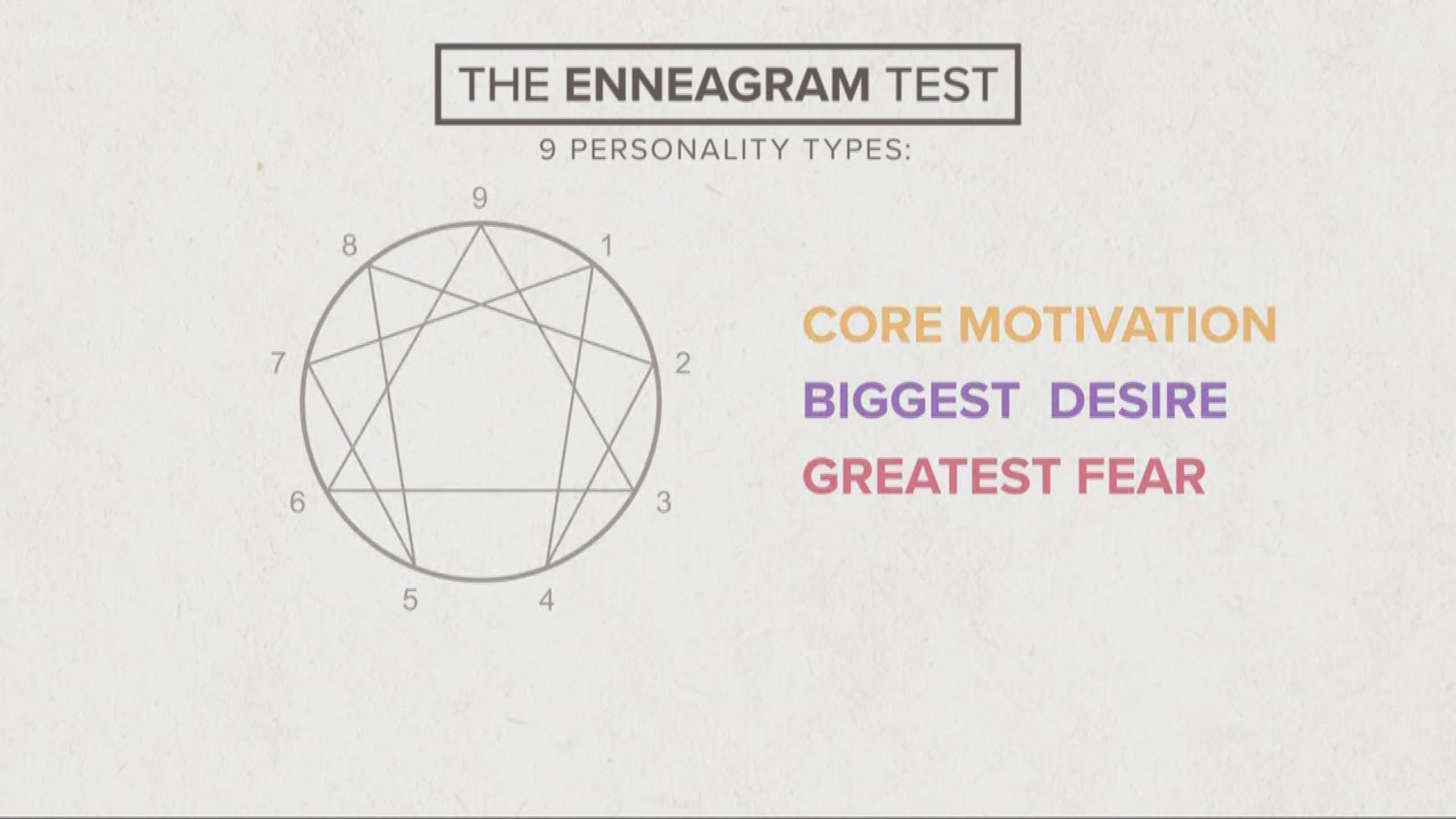We're continuing our deep dive into popular personality tests on 10News Today with one of the more unique breakdowns of personality: The Enneagram.
Compared to the Big Five and the Myers-Briggs tests, the Enneagram is more focused on specific roles of a given personality and its interaction with other personalities.
If you haven't taken the test yet, there are quite a few free versions you can find online.
What is the Enneagram?
Simply put: Nine personality types mapped on a geometric shape called the enneagram that gave the test its name.
The position of the nine types on the enneagram are said to provide insight into their connections with the other types. How a person answers the test's questions determines which number or type they fit into.
The analysis can be likened to that of the Myers-Briggs test in that each personality can be identified with basic strengths and weaknesses that can provide a person with revelations, aiding in their self-understanding and self-awareness.
Beyond the normal personality measures, there is also a level of outside analysis that comes in the form of divergent interpretations, some that eventually tread into mystical and spiritual territory.
What are the nine types?
The nine types are best visualized on the enneagram to understand their relation first:


Each type is represented by a number and name that exemplifies the dominant trait of that personality. Those types are:
- The Reformer: Types that seek improvement, perfection
- The Helper: Types that seek to help, to love and be loved
- The Achiever: Types that seek success, validation
- The Individualist: Types that seek individuality and uniqueness
- The Investigator: Types that seek knowledge, understanding through the observable
- The Loyalist: Types that seek firm beliefs, trust
- The Enthusiast: Types that seek satisfaction, pleasure
- The Challenger: Types that seek self-sufficiency, control
- The Peacemaker: Types that seek harmony, wholeness
Depending on which type you have, you might also have what's known as a 'wing'-- which is simply traits from one of the two personality types adjacent to yours on the enneagram. So a type 9 might have a type 1 or type 8 wing.
The lines that connect the personalities are interpreted in a few ways, ranging from one personality's connection to other connecting types, to how a personality can adapt and change into other personality types in stressful or relaxing situations.
Criticism of the Enneagram test
More so than even the Myers-Briggs test, the Enneagram has been widely criticized of employing pseudoscience -- meaning it has little actual scientific backing or merit to point to.
Some disagree with that harsh assessment, saying even though there's little rigor in the way of peer-reviewed studies on the test, it still functions as a valuable tool for self-insight.
The largest piece of criticism about the Enneagram model is that the nine types are largely ambiguous to the point that it's easy to shoehorn someone into any one of the nine types based off their answers -- likening it to the "Barnum Effect" associated with fortunetelling and astrology.
Keep coming back to wbir.com each day this week for more personality test content.

